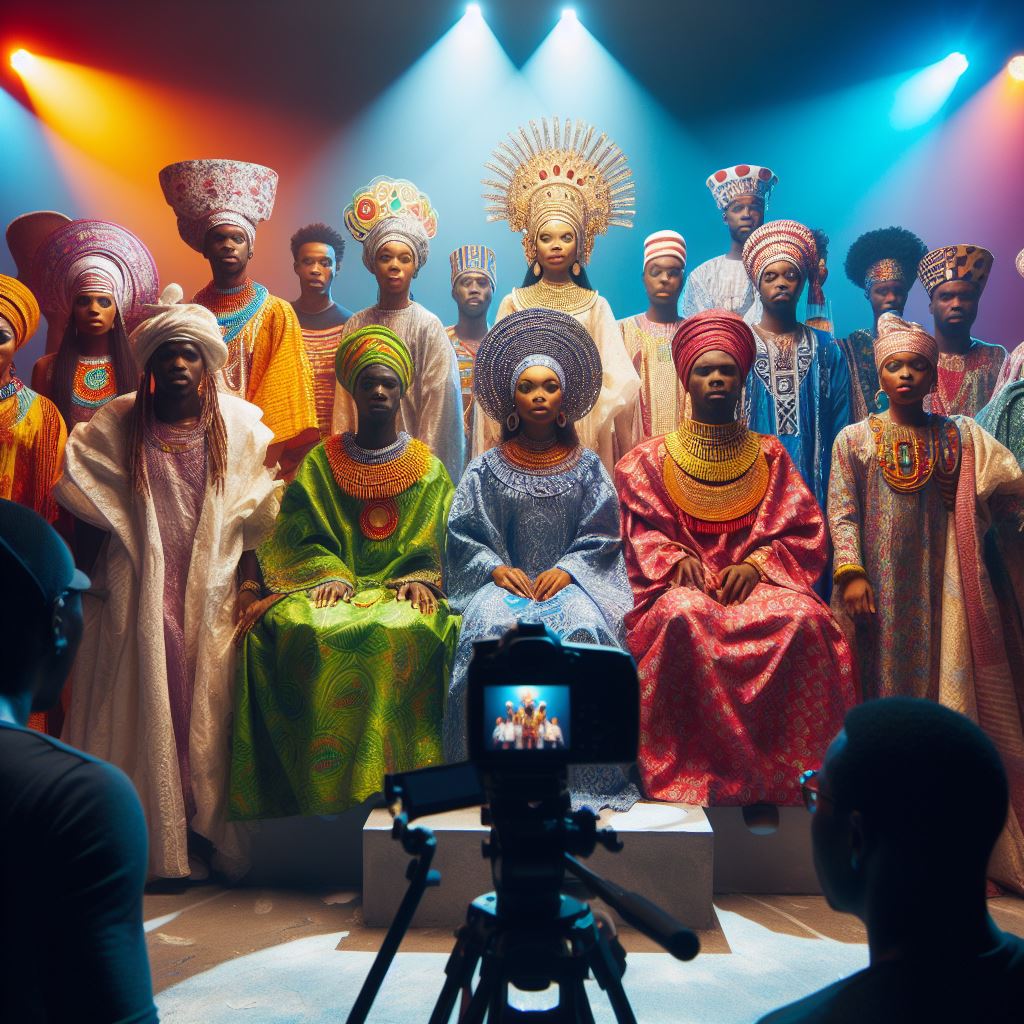Introduction
African philosophy, deeply rooted in cultural heritage, embodies centuries of wisdom, reflection, and intellectual discourse.
Understanding its essence within the Nigerian context unveils profound insights into societal dynamics, values, and identity.
African philosophy transcends Western paradigms, emphasizing communalism, oral tradition, and spirituality.
It embodies diverse schools of thought, including Ubuntu, Maat, and Ifá, fostering holistic perspectives on life, morality, and existence.
Importance of Understanding African Philosophy in Nigerian Context
In Nigeria, a nation rich in cultural diversity, grasping African philosophy is pivotal for national cohesion, identity formation, and socio-political development.
It serves as a compass, guiding ethical conduct, governance, and interethnic relations.
By delving into African philosophical frameworks, Nigerians gain insights into traditional values, worldview, and modes of reasoning.
This comprehension fosters respect for cultural pluralism, fostering unity amidst diversity.
Moreover, understanding African philosophy dismantles colonial biases and Eurocentric notions that overshadow indigenous knowledge systems.
It empowers Nigerians to reclaim their narrative, validating their intellectual contributions and heritage.
In contemporary Nigeria, grappling with multifaceted challenges, African philosophy offers invaluable resources for addressing societal issues.
Its emphasis on interconnectedness, communal responsibility, and harmony resonates with efforts towards sustainable development and social justice.
In essence, comprehending African philosophy within the Nigerian context is not merely an academic pursuit but a transformative journey.
It enriches collective consciousness, fosters cultural pride, and stimulates dialogue towards a more inclusive and resilient society.
As we embark on exploring the evolution of African philosophy in the Nigerian context, let us embrace its profound wisdom and insights.
By doing so, we honor our ancestors, enrich our present, and pave the way for a more enlightened future.
Historical background of African philosophy
The development of African philosophy can be traced back to pre-colonial times when various African societies had rich philosophical traditions.
These traditions were deeply rooted in the cultural practices, beliefs, and norms of different tribes across the continent.
Pre-colonial philosophical traditions in Africa
African philosophy in pre-colonial times was characterized by a strong emphasis on communalism, oral traditions, and spiritual beliefs.
Philosophers in Africa engaged in discussions about the nature of reality, ethics, and the role of human beings in the universe.
Key concepts such as ubuntu, which emphasizes the interconnectedness of humanity and the importance of community, were central to pre-colonial African thought.
Influence of colonialism on African philosophical thought
Colonialism had a significant impact on African philosophical thought, as European powers imposed their own worldview and values on African societies.
Western philosophy, with its emphasis on individualism and rationality, came to dominate academic institutions in Africa during the colonial period.
Many African philosophers began to grapple with questions of identity, cultural authenticity, and the legacy of colonialism in shaping modern African philosophy.
Read: Nigerian Film Festivals to Showcase Your Work
Evolution of African Philosophy in Nigeria
Indigenous Philosophical Practices in Different Nigerian Tribes
The evolution of African philosophy in the Nigerian context is deeply rooted in the diverse indigenous philosophical practices of different Nigerian tribes.
These practices reflect the unique cultural values, beliefs, and worldviews of each tribe.
Yoruba Philosophy
The Yoruba people, one of the largest ethnic groups in Nigeria, have a rich philosophical tradition known as Ase.
Ase is the life force that permeates all things in the Yoruba worldview. It is the power to make things happen and bring about change.
Yoruba philosophy emphasizes the interconnectedness of all beings and the significance of balance and harmony in the universe.
Igbo Philosophy
The Igbo people, another major ethnic group in Nigeria, have a philosophical system based on the concept of “Chi.”
Chi is the personal god or god-like force that governs an individual’s destiny. Igbo philosophy emphasizes the importance of community, justice, and reciprocity.
It also values the spiritual and metaphysical realms as essential components of human existence.
Hausa Philosophy
The Hausa people, predominantly located in Northern Nigeria, have a philosophical tradition that focuses on Islamic teachings and cultural norms.
Hausa philosophy is deeply rooted in religious beliefs, ethical values, and social practices.
It emphasizes the importance of faith, family, and community in shaping one’s identity and purpose in life.
Integration of Western Philosophical Concepts in Nigeria
In addition to indigenous philosophical practices, Nigeria has also integrated Western philosophical concepts into its intellectual discourse.
This integration is a result of colonialism, globalization, and the expansion of education in Nigeria.
Colonial Influence
During the colonial era, Nigeria was exposed to Western philosophical ideas through missionary activities, educational institutions, and administrative structures.
This exposure led to the adoption and adaptation of Western philosophical concepts in Nigerian academic and intellectual circles.
Transform Your Career with Expert Guidance
Get personalized mentorship consulting that’s tailored to your unique path. Our expert advice is actionable and exclusive.
Get StartedGlobalization and Education
Globalization has facilitated the exchange of ideas and the dissemination of Western philosophical texts in Nigeria.
The growth of educational institutions in Nigeria has also contributed to the integration of Western philosophical concepts into the curriculum.
Students and scholars in Nigeria now have access to a wide range of philosophical traditions, including Western, African, and Asian philosophies.
Contemporary Debates
The integration of Western philosophical concepts in Nigeria has sparked contemporary debates about the relevance, applicability, and cultural implications of these ideas.
Some scholars argue that Western philosophy can enrich and expand the intellectual landscape of Nigeria, while others contend that it may undermine or overshadow indigenous philosophical traditions.
Read: The Role of Directors in Nigerian Film Production
Key figures in the development of African philosophy in Nigeria
Contributions of scholars like Sophie Oluwole, Kwasi Wiredu, and Nkiru Nzegwu
The evolution of African philosophy in the Nigerian context has been greatly influenced by key figures who have made significant contributions to shaping the discourse.
Scholars like Sophie Oluwole, Kwasi Wiredu, and Nkiru Nzegwu have played pivotal roles in advancing philosophical thought in Nigeria.
Contributions of Sophie Oluwole
Oluwole is known for her work in indigenous African philosophy.
She has focused on Yoruba philosophy and its relevance in contemporary discourse.
Oluwole has challenged Western philosophical frameworks and advocated for African perspectives.
Her efforts have helped in promoting an inclusive and diverse philosophical landscape in Nigeria.
Contributions of Kwasi Wiredu
Wiredu is a renowned Ghanaian philosopher who has influenced Nigerian philosophical thought.
He has emphasized the importance of logical analysis in African philosophy.
Wiredu has advocated for a blend of Western and traditional African philosophical methods.
His work has encouraged critical thinking and intellectual dialogue in Nigeria.
Contributions of Nkiru Nzegwu
Nzegwu is known for her contributions to feminist philosophy in Nigeria.
She has highlighted the intersection of gender and culture in African thought.
Nzegwu’s work has challenged patriarchal structures in Nigerian society.
Her efforts have brought attention to marginalized voices in philosophical discourse.
Impact of their work on shaping Nigerian philosophical discourse
The collective contributions of Sophie Oluwole, Kwasi Wiredu, and Nkiru Nzegwu have had a profound impact on shaping the Nigerian philosophical landscape.
Their diverse perspectives and critical insights have opened new avenues for dialogue and reflection within the philosophical community in Nigeria.
Oluwole’s emphasis on indigenous African philosophies has helped in reasserting the importance of local knowledge systems and traditions in philosophical discourse.
Her work has broadened the scope of philosophical inquiry in Nigeria and fostered a deeper appreciation for cultural diversity.
Wiredu’s advocacy for logical analysis and the integration of Western and African philosophical methods has contributed to a more nuanced and rigorous approach to philosophical inquiry in Nigeria.
His emphasis on critical thinking has inspired a new generation of thinkers to engage with complex philosophical issues.
Nzegwu’s focus on feminist philosophy and the intersection of gender and culture has brought attention to the marginalized voices within Nigerian society.
Her work has sparked meaningful conversations about power dynamics and inequality, leading to greater inclusivity and representation in philosophical discussions.
Overall, the work of these key figures has enriched the philosophical landscape in Nigeria by fostering diversity, critical thinking, and a deeper engagement with local knowledge systems.
Their contributions continue to shape and influence philosophical discourse in the country, paving the way for a more inclusive and dynamic philosophical community.
Read: Philosophy and Youth Empowerment in Nigeria

Themes in Nigerian philosophy
Nigerian philosophy is rich in various themes that reflect the unique cultural and historical background of the country.
These themes play a significant role in shaping the philosophical discourse within Nigeria and beyond.
Themes in Nigerian Philosophical Thought
Communalism
Communalism is a central theme in Nigerian philosophy, emphasizing the interconnectedness and interdependence of individuals within a community.
Nigerian philosophers often highlight the importance of communal values, solidarity, and collective well-being.
This emphasis on communalism reflects the traditional African philosophy that values communal life over individualistic pursuits.
Spirituality
Spirituality is another major theme in Nigerian philosophy, drawing from the diverse religious traditions and beliefs present in the country.
Nigerian philosophers explore questions about the nature of the divine, human existence, and the afterlife, reflecting the spiritual worldview that permeates Nigerian society.
Spirituality plays a crucial role in shaping ethical and metaphysical inquiries within Nigerian philosophical thought.
Metaphysics
Metaphysics is a foundational theme in Nigerian philosophy, delving into questions about the nature of reality, existence, and being.
Nigerian philosophers engage with metaphysical inquiries, such as the concept of being, causality, and the nature of the self.
The exploration of metaphysical themes in Nigerian philosophy offers insights into the fundamental nature of reality and the human experience.
Comparison with Western philosophical themes
Comparing Nigerian philosophical themes with Western philosophical traditions reveals both similarities and differences.
While Western philosophy often focuses on individualism, rationalism, and empiricism, Nigerian philosophy emphasizes communal values, spiritual beliefs, and metaphysical inquiries.
The comparison highlights the diverse philosophical perspectives that contribute to the global philosophical discourse.
In general, themes such as communalism, spirituality, and metaphysics are integral to Nigerian philosophy, reflecting the cultural, religious, and historical complexities of the country.
By exploring and comparing these themes with Western philosophical traditions, Nigerian philosophers contribute unique insights to the broader philosophical conversation, enriching our understanding of human existence and the nature of reality.
Read: Prominent Philosophy Journals Published in Nigeria
Challenges facing the evolution of African philosophy in Nigeria
Marginalization of indigenous philosophical traditions
The dominant influence of Western philosophy has marginalized local African philosophies.
Indigenous African philosophical perspectives are often dismissed or undervalued in academic settings.
Lack of recognition and support for African philosophy in academic institutions
African philosophical texts are not widely taught or integrated into curricula.
Funding and resources for research in African philosophy are limited, hindering its development.
Addressing these challenges requires a concerted effort from scholars, policymakers, and educators to promote the rich heritage of African thought and philosophy.
It is essential to bridge the gap between Western and African philosophical traditions and create an inclusive space for diverse philosophical perspectives to thrive.
Emphasizing the importance of African philosophy in shaping cultural identity and intellectual discourse can help elevate its status within academic institutions and society at large.
Additionally, providing more opportunities for research, scholarship, and dialogue on African philosophy can help foster its growth and evolution in Nigeria and beyond.
By recognizing and supporting the uniqueness and relevance of African philosophy, we can contribute to a more inclusive and holistic understanding of the world.
Contemporary trends in Nigerian philosophy
Rise of African feminist philosophy in Nigeria
In recent years, there has been a significant rise in African feminist philosophy within the Nigerian philosophical community.
This movement aims to address the unique experiences and challenges faced by women in Africa, including issues of gender equality and social justice.
Moreover, there has been an increasing emphasis on decolonizing African philosophical discourse in Nigeria.
This involves challenging and subverting the Eurocentric perspectives that have historically dominated the field of philosophy on the continent.
One of the key proponents of African feminist philosophy in Nigeria is Prof. Sophie Oluwole.
She has been a leading voice in advocating for the inclusion of gender perspectives in philosophical discussions and highlighting the contributions of African women to the field.
The rise of African feminist philosophy in Nigeria has led to a reevaluation of traditional philosophical frameworks and a greater recognition of the diverse perspectives that exist within the country.
This has paved the way for a more inclusive and representative philosophical discourse.
Decolonizing African Philosophical Discourse
In addition to the focus on feminist perspectives, there has also been a growing movement towards decolonizing African philosophical discourse in Nigeria.
Scholars and intellectuals are challenging the hegemony of Western philosophical traditions and seeking to recover and reclaim indigenous African knowledge systems.
This emphasis on decolonization involves critiquing the legacy of colonialism and its impact on African thought, as well as exploring alternative ways of approaching philosophical questions that are rooted in the cultural and historical context of the continent.
Overall, the contemporary trends in Nigerian philosophy reflect a growing awareness of the need to diversify and decolonize philosophical discourse in Africa.
By embracing African feminist perspectives and advocating for the decolonization of philosophical frameworks, Nigerian philosophers are reshaping the landscape of philosophical inquiry on the continent.
Conclusion
The evolution of African philosophy in the Nigerian context has been a complex and dynamic process.
From the early pre-colonial period to the present day, Nigerian philosophers have grappled with various philosophical traditions and influences.
The quest for a uniquely African philosophical identity has shaped the discourse in Nigeria, leading to the development of distinct philosophical schools.
Despite challenges such as colonialism and globalization, Nigerian philosophers continue to engage with both traditional and contemporary philosophical issues.
As we look towards the future, it is essential to promote and preserve African philosophical traditions in Nigeria.
By encouraging dialogue, research, and education in African philosophy, we can ensure that these valuable heritage is passed on to future generations.
Let us all take action to support and celebrate the rich and diverse philosophical heritage of Africa, particularly in the Nigerian context.




